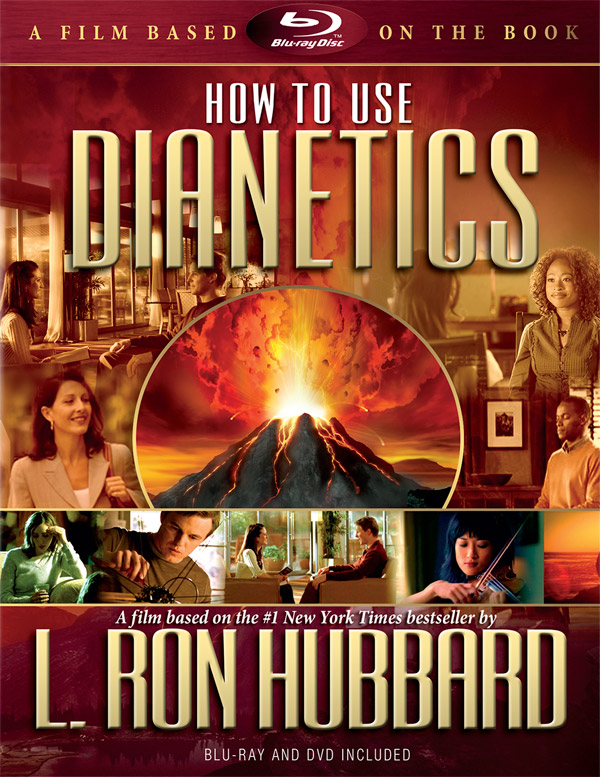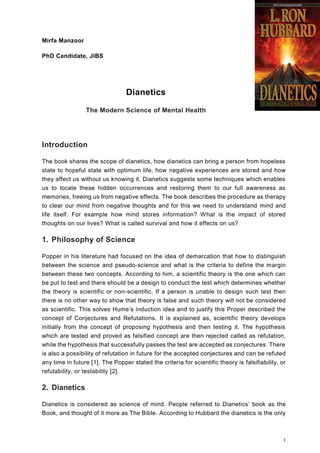The Ultimate Guide To Dianetics
The Ultimate Guide To Dianetics
Blog Article
How Dianetics can Save You Time, Stress, and Money.
Table of ContentsWhat Does Dianetics Do?All About DianeticsThe Single Strategy To Use For DianeticsDianetics Things To Know Before You Get This
I could not ever before not intend to get anything that enters your mind for you- if it was or else, I would not be resting right here with you, doing this. I not only can never have an issue, or otherwise intend to listen to something that enters your mind for you, yet I'm totally anxious to understand every concept, every thought, every picture or feeling that arises or shows up for you- do not ever before believe or else, and if somehow you do, please simply allow me know! Occasionally, you might have a thought, and picture, idea or occurrence turn up that does not appear to respond to the inquiry, or associate with it, however however, constantly do tell me regarding it, and as we continue, the significance will emerge for you.This is intrinsic in the basis of handling, and the topic of this conversation: the fundamental roles of the therapist and the client: The fundamental role of the therapist is, contrary to "typical training", not to regulate, which implies to implement and/or prevent, but to instead work from the basis of EMPOWERING THE CUSTOMER.

Not known Facts About Dianetics
John Mcmasters revealed this standard truth wonderfully well in one of his talks on Power handling, in which he explains how he was asked what this "special propensity" was that he had for providing such excellent sessions; he needed to consider that for a moment, and spotted that it was what he had not been doing, as well as what he was doing: he wasn't assessing, judging, computing, or in fact, creating any type of thoughts, not to mention verbal expressions, after offering the command and while waiting for the PC to complete their solution to their complete satisfaction; he was, merely and only, being existing with the PC, and completely interested.
The duty of the counselor, demonstrated; that was his "special knack". I have had my own experience which instructed me this well, very early on in the video game. In 1982, having just recently finished my training and internship on New Age Dianetics, I was running this on a PC, and there was a factor in the session where (being a little bit wet behind weblink the ears not yet having many hours under my belt as a professional auditor) the computer appeared to be "taking also long" to express anything verbally after I provided him a command.
This trick transformed out to be the most useful contribution that John ever before made to the topic of treatment or auditing (Dianetics). In my simple point of view, it is the best contribution that any person has ever made to these subjectsthe application is totally non-judgemental, non-evaluative, and lacking any type of tip, suggestions or opinion.no preconditioned agenda for individuals, or 'levels' that they need to do
In Scientology we prided ourselves on not examining for individuals. All that really implied was that the auditor did not VERBALLY assess for the PC in session.
Indicators on Dianetics You Need To Know

Anybody that had actually ever before seen John audit can not help but observe a distinct high quality in his auditing."The customer's standard function is to be there with Full Report the purpose of moving in the instructions of their spiritual objectives, and to freely and completely reveal and experience whatever shows up for them in answering the questions and carrying out the instructions in the handling.
This is something to procedure as required. Yet likewise, individuals frequently have prior experience and/or indoctrination in auditing/processing which, somehow, and to some degrees, in fact misleads them right into attitudes, concepts and habits patterns that prevent the complete realization of these roles, and so they will certainly have a tendency to hinder the expressing of what enters your mind, as in the examples offered above. * The very first, and probably leading examples of mis-indoctrination causing less than entirely smooth and effective sessions, can be found in specific facets of the training routines, or "TR's":"TR's" are commonly a person's first, or at the very least early, experience in Scientology, and while I will certainly go on to describe what I see as the defects in idea and method, nevertheless, have a tendency to be significantly healing, done as they are offered (Hubbard urges that "TR's are not refining, they are educating", yet factually, they are both processing AND training)
Alan Walter made similar monitorings, and enhanced these with his "Existence Processes". There is no "flunking", and no denial of the truth of this being processing. The emphasis, as it ought to be, gets on experiencing the various other individual's existence. All the symptoms which get a "flunk" in doing "TR-0" are just the being's initiatives to withstand the other individual's visibility, and as opposed to being pestered and nagged with "Flunk", which imposes "failing!" on the being, one just needs to be encouraged to "stick their feet in the water a little much deeper", to progressively rehabilitate their ability and readiness to fully share and experience "being here", or "existence", with others.
Dianetics - Questions

Report this page